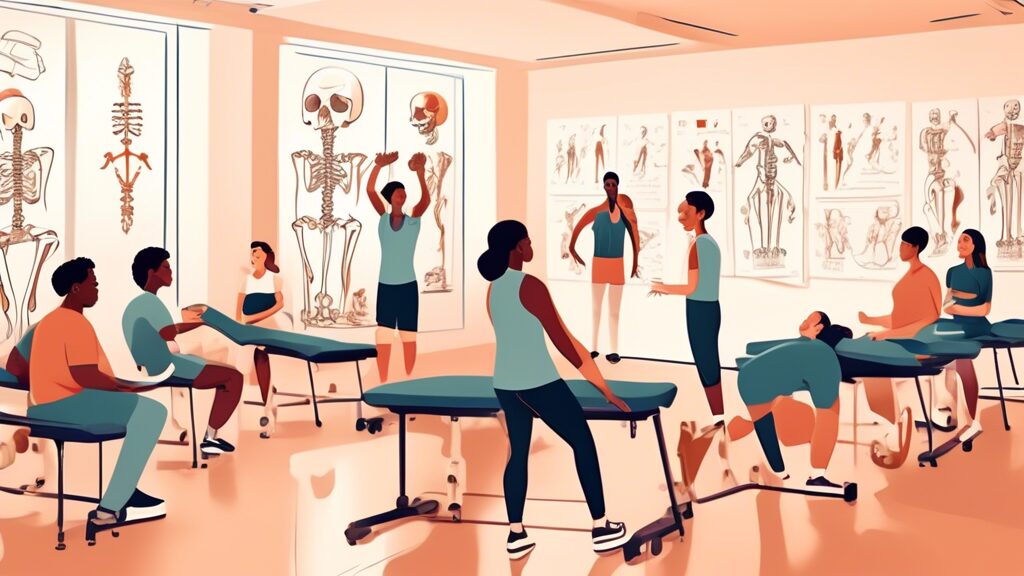Introduction to Athletic Therapy Programs
Athletic therapy is a specialized field dedicated to the prevention, immediate care, and rehabilitation of musculoskeletal injuries by athletic therapists. It is pivotal in sports environments but also applicable in a wider context where individuals may sustain physical injuries requiring expert intervention. This article explores the fundamental aspects of athletic therapy programs, educational pathways, and the diverse career opportunities available for graduates.
Educational Pathways in Athletic Therapy
Undergraduate Programs
Most athletic therapy programs are offered at the bachelor's level, typically requiring four years of study. These programs provide a comprehensive foundation in areas such as human anatomy, physiology, biomechanics, and orthopedic assessment. Students engage in extensive practical training, which includes field and clinical placements that are essential for gaining hands-on experience. Coursework is designed to prepare students for certification examinations and to equip them with the necessary skills to handle real-world situations effectively.
Postgraduate Opportunities
After completing a bachelor's degree in athletic therapy, graduates may choose to further specialize by pursuing postgraduate studies. Options include master's degrees or certificates in related fields such as sports medicine, physical therapy, or kinesiology. These advanced studies provide deeper knowledge and more specialized skills, which can enhance career opportunities and lead to positions in research, teaching, or advanced clinical practice.
Certification and Licensing
Upon completion of an accredited program, aspiring athletic therapists must pass a certification exam administered by national bodies such as the Board of Certification, Inc. (BOC) in the United States or the Canadian Athletic Therapists Association (CATA) in Canada. Some regions also require athletic therapists to obtain a license to practice, emphasizing the need to check regional regulations. Maintaining certification typically involves continuing education courses to stay updated with the latest practices and technologies in the field.
Career Opportunities for Athletic Therapists
Sports Teams and Athletic Departments
One of the most common employment settings for athletic therapists is with sports teams, ranging from amateur youth groups to professional leagues. In these roles, therapists are responsible for preventing injuries through prophylactic support, providing immediate care during events, and managing rehabilitation processes to ensure athletes return to their sports safely and effectively.
Clinics and Hospitals
Athletic therapists also find opportunities within clinics and hospitals, working alongside other healthcare professionals. In these settings, therapists tailor rehabilitation programs for a diverse patient demographic who sustain injuries that impact their daily lives or work duties, not just sports-related injuries.
Corporate and Industrial Settings
Increasingly, companies are recognizing the benefits of having athletic therapists on board, particularly in industries that require physical labor. Therapists in these settings focus on injury prevention and management, employee wellness, and ergonomic consultations to enhance workplace safety and productivity.
Education and Research
There are also pathways into academia and research for those who pursue postgraduate degrees. Athletic therapists can contribute to advancing the field by conducting research, innovating new treatment techniques, or shaping future therapists through teaching roles at educational institutions.
Key Skills and Attributes for Success
Effective athletic therapists combine a deep understanding of the human body with excellent interpersonal skills. They must be able to make quick decisions, think critically, and communicate effectively with patients, coaches, and other healthcare providers. Adaptability and a continual willingness to learn are crucial, as the field is ever-evolving with new research and technologies.
Conclusion
Athletic therapy is a dynamic and rewarding profession that offers numerous opportunities for those interested in a career centered on sports and physical health. Whether working directly with athletes, in clinical settings, or in the corporate sector, athletic therapists play a critical role in physical health maintenance and rehabilitation. By choosing the right educational program and obtaining necessary certifications, motivated individuals can build a fulfilling career that makes a significant impact on the lives of many.





